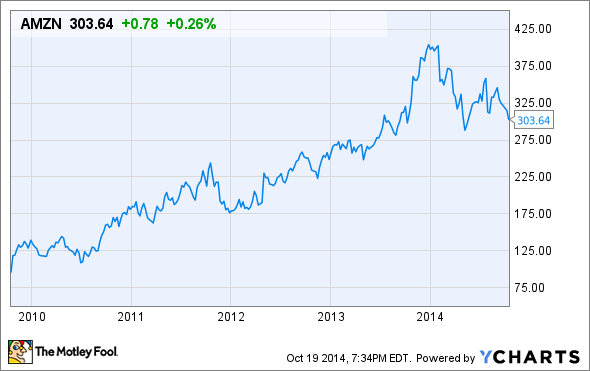The stock market is experiencing feverish fluctuations – the virus outbreak has affected us all in some way at this point.
Some of you may think that now is not a good time to start investing. But in fact, fear, panic, and bad times sometimes provide great opportunities in the stock market. You just need to know how to use these opportunities. If you’ve never tried investing in stocks or shares before, then you might first wish to look at SoFi and their 101 guide to investing.
In this article, we’re going to tell you about key elements you should consider before making any investments and tips to start with.
Are you ready to invest?
Let’s be honest — not everyone is quite ready to invest. Now we’re talking about a particular mindset that allows people to become investors. For instance, you need to make sure you’re financially prepared for emergencies that are imminent in a stock market. As an investor, you’ll have to take the highs and the lows of the market, not just one without the other.
Here’s a quick checklist to find out if you’re ready to start investing.
- Currently, you don’t have high-interest rate debt. If you do, pay it off first.
- You do know how to handle an unexpected big expense or you have an emergency fund. It makes no sense to put the only extra dollars you have in the market, as you might need them for emergencies.
- You understand that the value of your holdings will fluctuate and you may lose some money as the stock market may head south for a while or stagnate.
- You can be sure that you won’t need the money you’re planning to invest in the stock market for 5-10 years. In this case, you won’t have to sell your holdings when prices fall.
What you should know about before making investments in any company
Before you make any investment decisions, make sure:
- You know the company’s major products or services
- You understand its competitive advantages
- You’re able to explain clearly why you’re buying stocks of this particular company
- You’ve studied the company’s financial statements (such as income statements)
- You are familiar with risks and challenges
What you should look for in stocks
First of all, before buying any stocks ask yourself two questions:
1) Is this a strong and reliable company?
2) Is the price of a company’s stock attractive right now?
If you don’t ask these questions early on, you’re risking buying stocks of a troubled business or stocks that are overvalued.
Most investors used to evaluate a company’s worth focusing on either quality or price. So if they were looking into purchasing or trading these astrazeneca shares or another investment opportunity, they’d have to look for specific indicators to determine whether the investment is a worthwhile choice. Quality-related measures represent a company’s profitability, growth, and financial health. The indicators include earnings growth rates, profit margins, return on equity (ROE), return on assets (ROA), and others. Price-related measures help investors find out whether the stock is underpriced, overpriced, or priced just right. The indicators include market capitalization, price-to-earnings (P/E) ratio, price-to-sales ratio, etc.
The simplest way to measure a stock’s valuation is to calculate its P/E ratio. In general, the lower the P/E, the more attractive the stock. However, P/Es can vary by industry.
Tips to start investing in 2020
Some people would decide that they don’t have time, energy, or interest in becoming an investor by the moment they have started reading this sentence. And that’s perfectly fine. However, if you’re still willing to learn investment tips, we’ve pulled them together for you. In times passed, investing and trading stocks used to be a lot more difficult and was only pursued by those with minds geared towards finance and numbers. However, now everyone can look to try to make smart investments via the use of the different best investment app platforms available on the market.
Tip #1 Understand your risks
It may sound obvious and easy for you at first. ‘Of course, I understand my risks’. But in fact, few people weigh up risks accordingly. So, take a moment to consider what you’d be risking if the market went south, became stagnant, or experienced a downturn and you lost part of your investment.
If you’re not sure, there are assessment tests you can take, such as the Investment Risk Tolerance Assessment, that may help you make a deliberate decision.
Tip #2 Temper your expectations
Everyone expects to have millions of dollars right after entering the stock market. That’s why experienced investors joke that patience is the first lesson young investors should learn. Newbies want to see quick results and get disappointed when they don’t receive returns as quickly as they hoped. Unfortunately, it doesn’t work like that.
Reading and learning more about investment strategies will help you set reasonable expectations. Yes, we’ve all heard those success stories of how stocks of Amazon.com or Netflix have doubled, tripled, sextupled, etc. over the years, but that’s an exception rather than the rule. Furthermore, even those stocks didn’t rise in a straight line.

Amazon’s stocks over 5 years. Source: Google
So, to get the best results, you need to set reasonable expectations and be very patient.
Tip #3 Have an exit plan
In a perfect world, every stock you buy would go up and up. Well, the reality is far from that. So before you buy any stock you need to have a plan of what you will do if it goes down. Will you sell quickly and keep your losses small? Will you hold on hoping for a stock market rebound in time? It’s up to you. Just make sure you have an exit plan.
Tip #4 When investing, base on future potential, not past performance
Investing implies making decisions based on your assumptions of what things will take place soon. And past data sometimes can help you anticipate things to come, but it’s never guaranteed.
So don’t make your investment decisions based on things a company has already brought to market. Instead, look at their strategy and plans for now and future to decide whether you should invest or not.
Tip #5 Use online investment tools to make it easier
If you’re looking for easy ways to get started investing, online investment tools like Betterment can help you with that. In fact, they help investors focus on their goals such as building an emergency fund or investing savings for a down payment for some large purchases.
Services like Betterment and apps like Stash or Stockpile also offer fractional share investing which means people can buy a portion of a stock instead of a whole unit. This makes it easier for investors with a limited amount of money to enter the market.
Tip #6 Keep an eye on fees
Over a third of U.S. investors think that they don’t pay any fees. But as it turns out, in some cases fees can even eat away at your investment returns.
Although services that help you set up and manage your money are truly useful, they require additional fees which are usually between 0.25% and 1% of your assets.
The average expense ratio across mutual funds, including index funds, was about 0.52% in 2019 while ETFs carry average ratios of 0.44%.
Tip #7 Find diversified funds
Instead of picking individual stocks, it’s better to look for a total stock market exchange-traded fund (ETF) for a good start. Fidelity Total Market Index Fund, Schwab Total Stock Market Index Fund, or the Vanguard Total Stock Market ETF can help you with that.
You can also look for a blend index fund. These types of funds create a diversified investment option. The Vanguard Balanced Index Fund is a great example of a blend fund, as it has 60% in stocks and 40% in bonds by tracking two indexes.
Conclusion
Considering the environment we’re currently all in, the main point we want you to pay attention to is your emotions. They’re essential throughout your whole investing life, but especially during times of volatility in the stock market. Do not let feelings of irrational fear or panic make you sell out of healthy and prospering companies. Similarly, do not let greed make you buy stocks that have surged to an overvalued level.
If you feel too nervous about investing in the stock market now, then don’t do it. You can keep learning about how investments work until you’re comfortable with the idea of investing on your own.
If you’re willing to invest, make sure you have a liquidity cushion to support you in case of emergencies.
Keep in mind that you should never invest any money you will or may need within five or ten years.
Now is a great time to start investing — just make sure you’re prepared for emergencies, as well as the hard and, of course, positive times ahead.


